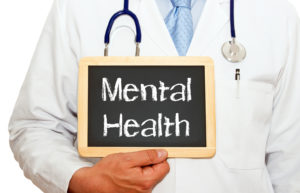 When it comes to treating our dual disorder (mental health diagnosis and substance use disorder) a common concern is which do you treat first? The answer to this lies in the question, what are your concerns at the time of seeking out services? Sometimes it is an easy answer, your mental health may be stable, but your use is causing the chaos. Or you may be suffering with untreated mental health symptoms and that puts your substance abuse on the back burner. The question shouldn’t be which is primary, but rather where are my needs today?
When it comes to treating our dual disorder (mental health diagnosis and substance use disorder) a common concern is which do you treat first? The answer to this lies in the question, what are your concerns at the time of seeking out services? Sometimes it is an easy answer, your mental health may be stable, but your use is causing the chaos. Or you may be suffering with untreated mental health symptoms and that puts your substance abuse on the back burner. The question shouldn’t be which is primary, but rather where are my needs today?
Do you incorporate both mental health and substance use services?
If you and your team of providers can identify where your needs are, you can then decide how to best treat your personal symptoms and concerns. This may look different for everyone, you can either treat one diagnosis/area as your primary concern or you can incorporate your treatment for both diagnoses. By treating both of your diagnoses together, you will ensure that your overall well-being is being addressed. When treatments are combined, neither area takes precedence. Rather, you are handling everything together as they do have an impact on one another.
Does it really matter?
The short answer is yes, it does matter to a certain extent. However, the longer answer is no. First, we need to understand why it is important to understand your diagnosis. If you can recognize your symptoms, you can then differentiate if your mental health is fueling your use or if your use is fueling your mental health symptoms. So, if you know what you are experiencing, then it does matter if your mental health or your use is treated as primary.
Now for the long answer, assuming you are not sure if you are dealing with an actual mental health diagnosis or symptoms brought on by use, it doesn’t matter. Unfortunately, if you are unable to recognize which came first, so to speak, it will be nearly impossible to tease out which is primary. If you are struggling to recognize if your symptoms are separate things or one in the same, then the primary focus will be what is causing you the most distress in that moment. Not which diagnosis is primary and therefore your treatment will focus on stability.
Working through mental health and substance abuse can be difficult on their own. When they are combined, life can become very scary to navigate. Many agencies will want you to be stable for one diagnosis prior to treating the other. However, with proper research and understanding of your own symptoms and experiences you can seek out the services you need to best help you.
